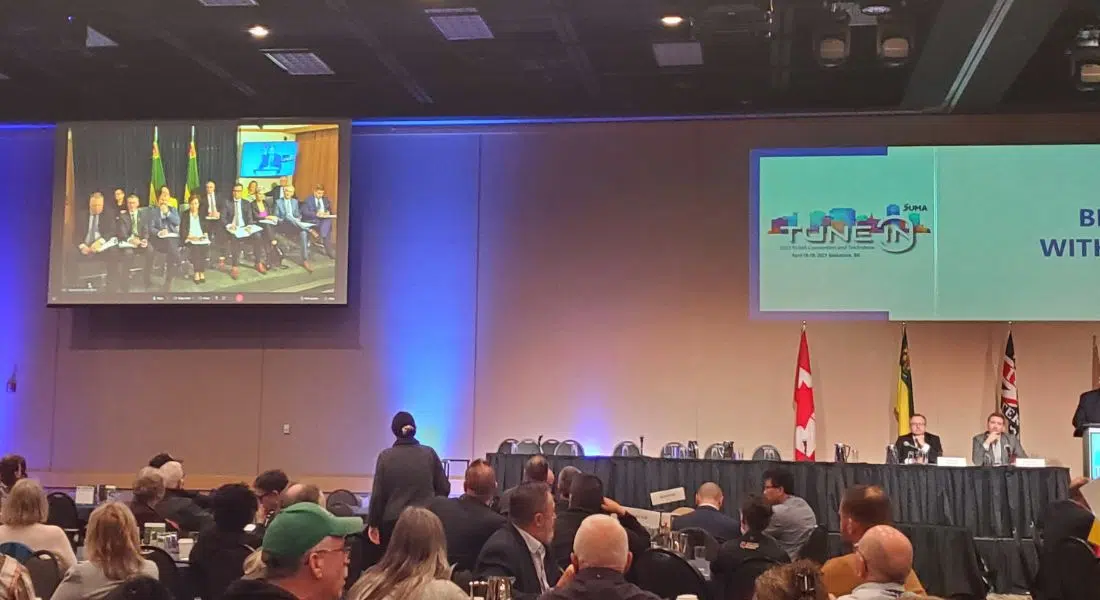(in the picture L to R: Ministers Jim Reiter, Jeremy Cockrill, moderator and Saskatoon City Councillor Randy Donauer, Ministers Don McMorris, Gordon Wyant)
Municipal revenue sharing, a request for an increase to the Personal Care Home benefit, getting the various levels of government to come together to talk about shifting election dates, and needing more funding for mental health and addictions and for homelessness – those are some of the topics brought up by delegates at the Saskatchewan Urban Municipalities Association convention, during the bearpit session with the Premiers and the provincial Ministers. There were only four Ministers present in person at the session, because of the roads, and the rest attended virtually from Regina.
The concern raised most was around homelessness and the Saskatchewan Income Support Program. It was the first question of the session, voiced by Saskatoon Councillor David Kirton. He said the SIS program isn’t helping people who are vulnerable to being unhoused, and he believes that instead, it is manufacturing homelessness because the program doesn’t fund enough to cover expenses. The delegates applauded when he asked if the SIS program could return to having direct payments to landlords, along with guaranteed utility payments and fewer barriers to rehousing. Minister of Social Services, Gene Makowsky answered that Saskatchewan has some of the highest rates in Canada for supporting those most vulnerable. He estimates there are around 17,000 people on the SIS program and he believes the vast majority are able to make ends meet.
A Prince Albert Councillor who is also a member of the Lac La Ronge Indian Band, Tony Head, commented that Truth and Reconciliation is often mentioned and there are land acknowledgements, but he doesn’t believe this has led to any changes. He says, “My people are suffering while the province they live in celebrates wealth and success. There is a $1 billion surplus and I want to know if the government of this province is willing to commit a tenth of that surplus to support nearly half its population. Will the government make real commitment to create safe spaces and provide real, ongoing services to treat the mental health issues that drive so many of our citizens into poverty and addiction?” Minister Responsible for First Nations, Métis and Northern Affairs, Don McMorris, responded that this year in the budget there is $249 million for First Nations and Metis people – most of which comes from the gaming agreement through the Federation of Sovereign Indigenous Nations. He adds that the billion dollars to pay off debt was from resource revenues which fluctuate so they can’t be guaranteed each year, which means it would be difficult to budget anything that would be needed annually.





















